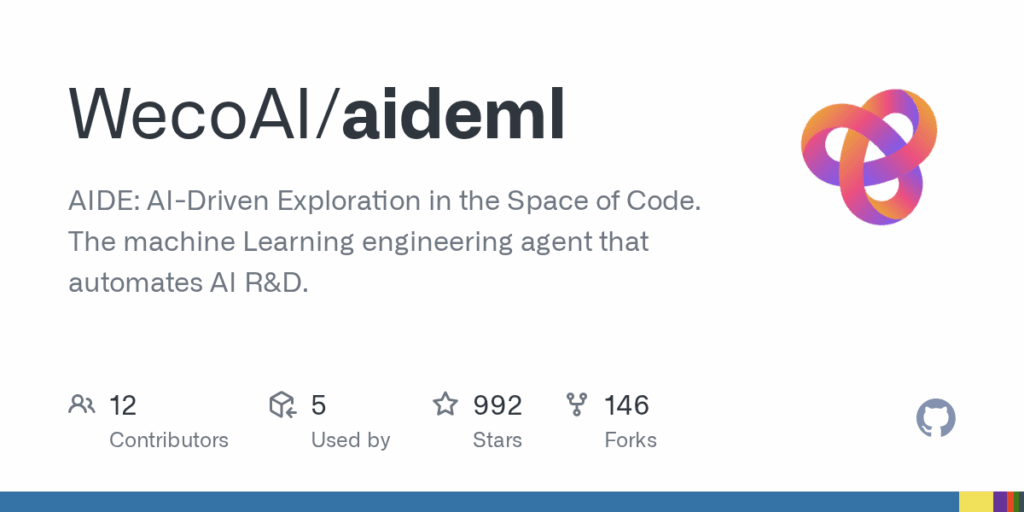aideml
Basic Information
AIDE ML is the open source reference implementation of the AIDE algorithm, a machine‚Äëlearning engineering agent that autonomously drafts, debugs and benchmarks code to optimise a user‚Äëdefined metric. It is delivered as a research‚Äëfriendly Python package with a CLI, a Streamlit web UI, HTML visualiser and configuration presets so academics and engineer‚Äëresearchers can replicate the paper, reproduce experiments, test new search heuristics or LLM back ends, and prototype end‚Äëto‚Äëend ML pipelines. The repo implements an agentic tree‚Äësearch over code where each Python script becomes a node and LLM‚Äëgenerated patches spawn child nodes. It also provides model‚Äëneutral plumbing for OpenAI, Anthropic, Gemini or local LLMs that speak the OpenAI API and includes example tasks, logging and artefact output for experiment analysis.








